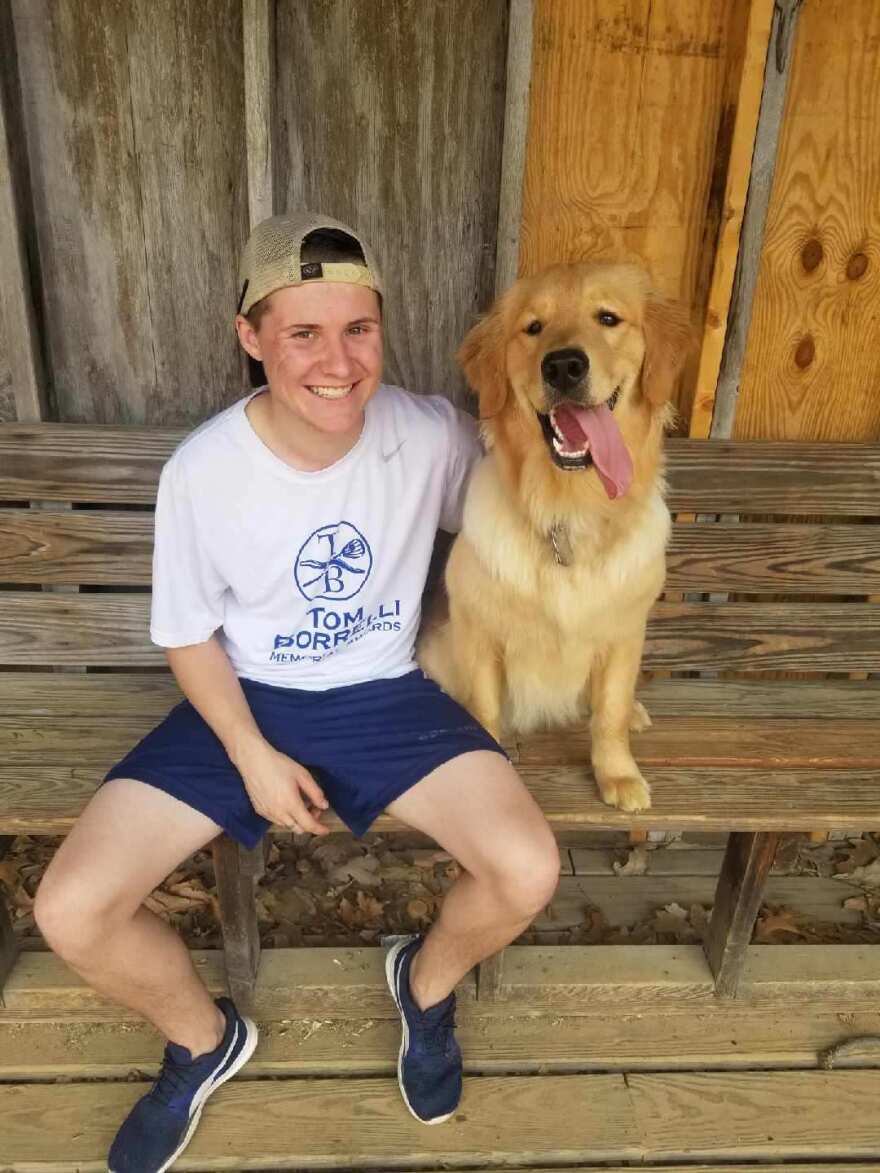Second year students in the University at Buffalo’s medical school have a lot to learn, especially about treating individuals in the LGBT community. WBFO’s Avery Schneider takes us on a classroom visit.
A sweet, reassuring voice singing Fred Small’s “Everything Possible” might be what you expect at a lighthearted folk concert. But in this case, it’s actually the start of a class on reproductive health at the University at Buffalo’s downtown medical school. About 150 future doctors are here to discuss caring for patients in the Lesbian, Gay, Bisexual, and Transgender community.
“You can be anybody you want to be. You can love whomever you will,” sings Lisa Jane Jacobsen, Clinical Associate Professor in Obstetrics and Gynecology, in a pre-recorded video.

“You know that message can be conveyed in so many different ways,” she said. “And I think I was hoping that it would be somewhat impactful and fun.”
Jacobsen uses the song to prepare students who, within a few months, will be interacting with patients each day. And some of those patients will be from the LGBT community.
“We try to teach them to be respectful of different beliefs, religions, cultures, ethnicities, opinions, and that they don’t have to agree with everybody, but that they certainly have to be respectful and help people,” said Jacobsen.
It’s what she calls “cultural competency.”
Students also have to understand the long list of health concerns LGBT patients may face. They range from broad issues with discrimination and health insurance, to more specific ones like cancers and sexually transmitted infections.
Getting into a discussion of those topics takes the right questions. Some start with sexual activity, which can be hard for even doctors to talk about. And it can be harder when dealing with LGBT patients.
“The ability to be comfortable asking those questions in a respectful fashion that continues to build that bond between a doctor and patient is a really, really huge asset for medical professionals to have,” said Kayden Maclay, who found his identity as a transgender male when he entered college. For the second year in a row, he’s been asked to talk to the students at UB.
“I am one trans person, I don’t represent the entire trans population,” Maclay tells the students as introduces himself.

The Kent State Senior and Williamsville native wants them to feel comfortable with people who are transgender. He also wants them to understand the discrimination they sometimes face.
“Once people are able to see me as Kayden – and not just as the trans kid standing in front of class, or in front of a lecture hall, or in the middle of a hospital – as soon as I become Kayden and I stop being the trans guy, it’s a lot easier to put that struggle on a face and suddenly empathize with it,” he said.
By the end of the class, the lesson takes hold with students like Mary Leeman of Rochester, who’s learned there’s a lot she still doesn’t know, but that that’s okay.
“It’s not going to offend the person if I’m like, ‘Okay, so you’re a male to female transgender. What does that mean? Can you educate me on it,’” said Leeman. “Letting the patient educate me, rather than me thinking I’m supposed to know all the answers, and if I tell them I don’t know something than they’re going to think I’m a bad doctor or provider because I’m uneducated. But it’s like, no, they can teach me.”
And Helia Zand of Maine learned “you can’t use a cookie cutter” approach when treating the LGBT community.
“You do have to get a feel for a person,” she said. “You know, if they’re a little bit more uncomfortable, maybe today’s not the day we go fully in. Maybe today we just build rapport, and the next time I see you, you know that you can open up.”
Ultimately, their most practical education will come from training in clinical settings. The learning – and their questions – don’t stop when they leave the classroom.

Medical Professors Lisa Jane Jacobsen and Christopher Cohan sing Fred Small's "Everything Possible" in this video used to open a discussion on treating the LGBT population in a reproductive health course at the University at Buffalo's Jacobs School of Medicine and Biomedical Sciences.




